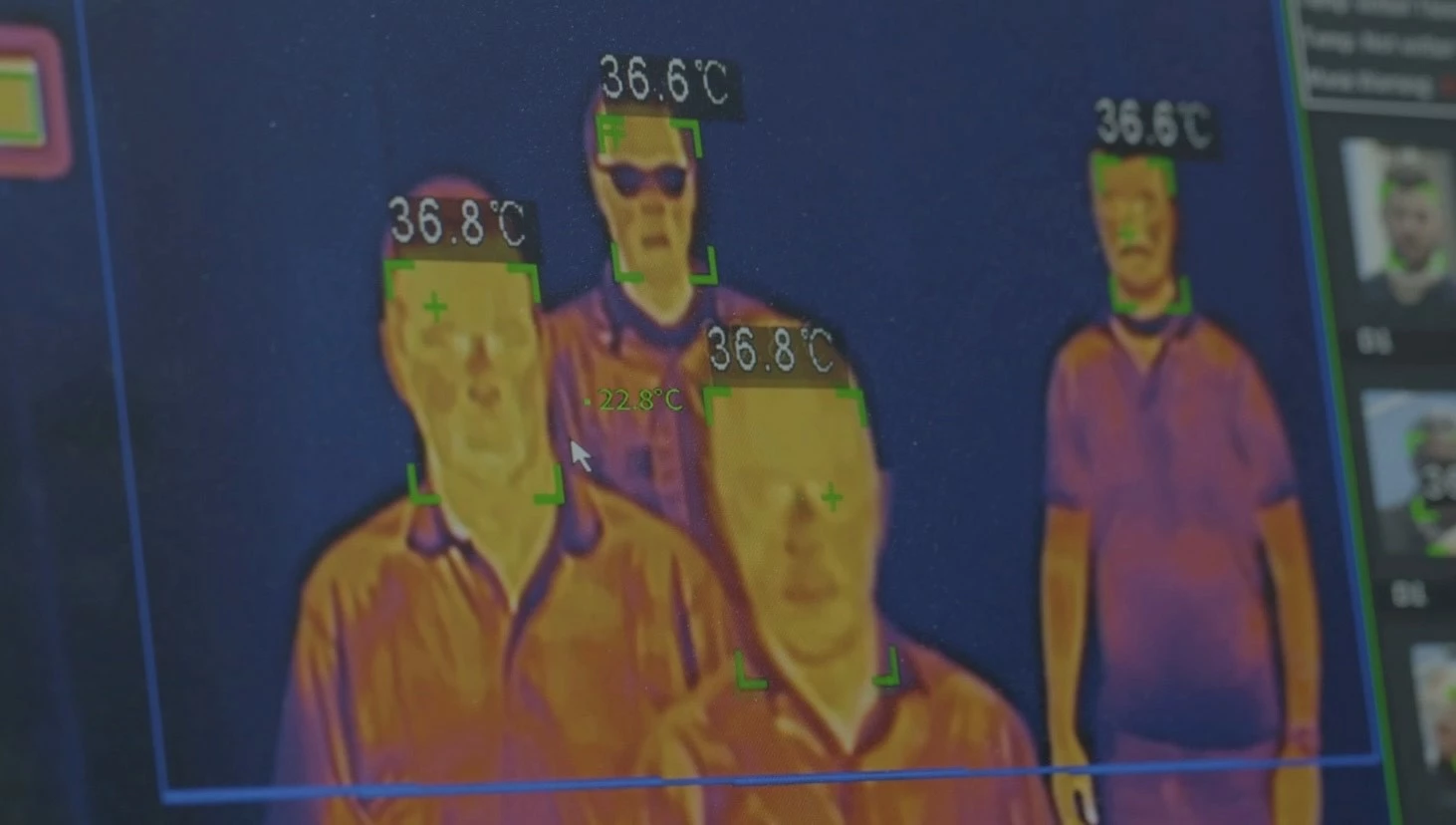
Member Article
Thales installs thermal cameras at 108 Network Rail critical staff locations to monitor for Covid-19
Thales has rolled out the installation of thermal cameras at over 108 critical Network Rail staffing locations across Britain as a safety measure to help protect staff.
One of the key signs of COVID-19 is an elevated temperature, so by monitoring the body temperatures of staff to within a specific range on entry to site, the cameras are able to help detect and prevent the potential spread of the virus within Network Rail’s workforce.
After two successful trials, installations commenced nationally. Initially, Network Rail and Thales planned to install 80 cameras, but news of the solution soon spread with additional sites being added daily. In ten weeks over the summer, 118 thermal imaging systems were rolled out across 108 sites and continue to be in operation.
New technology The thermal detection solution provided combines a highly sensitive thermal imaging camera with calibration and monitoring equipment to ensure that raised temperatures in staff are detected. The technology gives an accurate indication of an individual’s body temperature to within +/- 0.3 °C, so that staff at critical sites can identify anyone potentially carrying the COVID-19 virus. This, in turn, minimises the risk of the virus being spread within critical operating locations, such as rail operating centres and other critical locations.
The cameras work in a wide range of light conditions and in real-time. On detection of a temperature over a designated threshold, the system alerts the individual to take appropriate action. It is based on proven camera technology in use at locations internationally and is capable of measuring the temperature of up to 30 people simultaneously.
A speedy response Building confidence with the technology was key to ensuring buy in from those that would be operating and those that would be subject to scans by the system. Initially, one Network Rail office was selected as a trial site, but this expanded to two locations in order to build user confidence. Both trials were up and running within three days of the project going ahead.
“Following an initial tender request from Network Rail’s Research & Development Portfolio, the Thales team quickly rolled into action. From the issue of the request for the proposal and submission of a response, to Network Rail’s evaluation of the various offers and completion of a trial, the whole process was complete within less than two weeks. In a normal environment this would have taken months” - David Taylor, Network Rail Account Manager, Thales
This was posted in Bdaily's Members' News section by Thales Mobility Team .
Enjoy the read? Get Bdaily delivered.
Sign up to receive our popular morning National email for free.




 test article 123456789
test article 123456789
 hmcmh89cg45mh98-cg45hm89-
hmcmh89cg45mh98-cg45hm89-
 test456456456456456456
test456456456456456456
 test123123123123123123
test123123123123123123
 test xxxdiosphfjpodskhfiuodsh
test xxxdiosphfjpodskhfiuodsh
 Savour the flavour: North Tyneside Restaurant Week returns for 2024
Savour the flavour: North Tyneside Restaurant Week returns for 2024
 Six steps to finding the right buyer for your business
Six steps to finding the right buyer for your business
 Stephen signs off on a special night
Stephen signs off on a special night
 Life’s a Peachaus: Gillian Ridley Whittle
Life’s a Peachaus: Gillian Ridley Whittle
 Making a splash: Phil Groom
Making a splash: Phil Groom
 Making workplace wellbeing a priority
Making workplace wellbeing a priority
 A record of delivery, a promise of more: Ben Houchen
A record of delivery, a promise of more: Ben Houchen